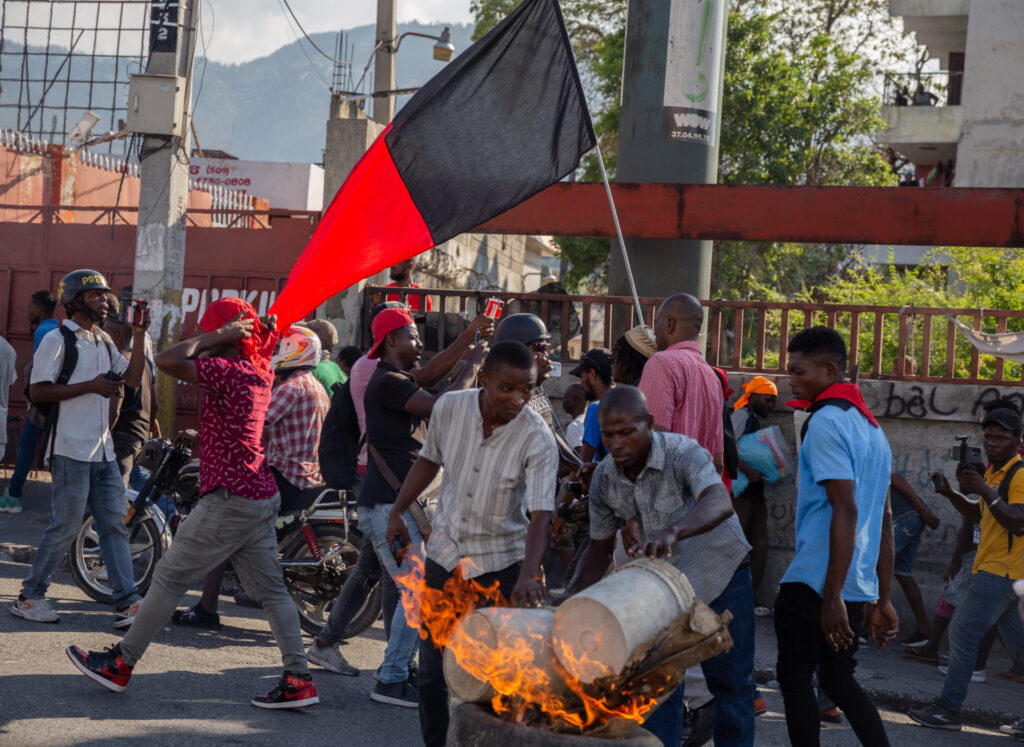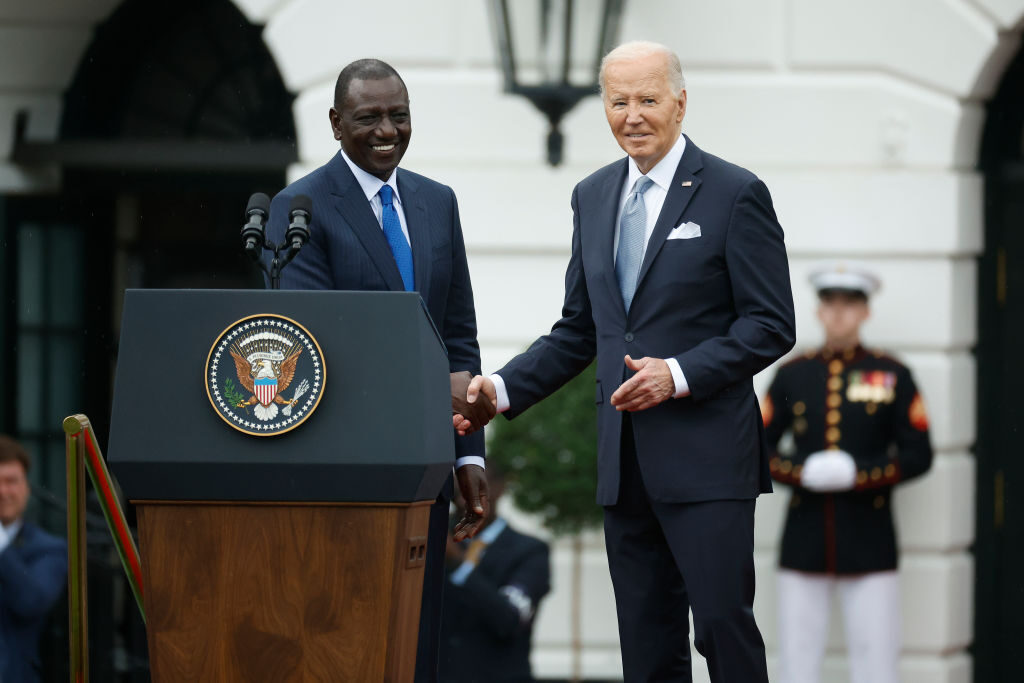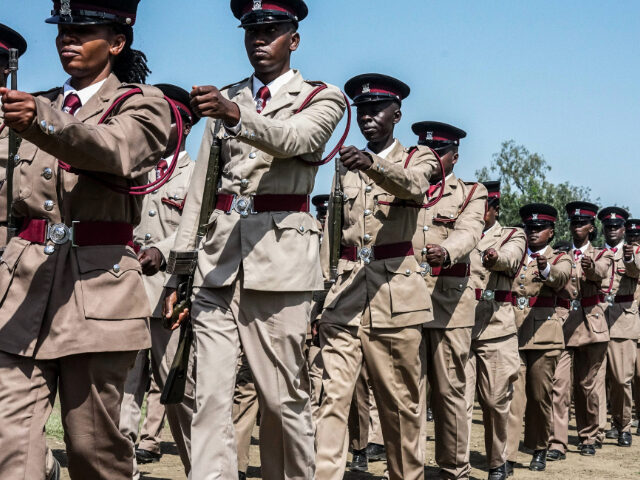An unnamed official of the Kenyan Interior Ministry told Agence France-Presse (AFP) on Sunday that a force of police officers is finally ready to depart for Haiti after almost a year of political and legal hurdles.
If the information the Interior Ministry official and police sources provided is accurate, two “advance teams” have already been dispatched, and an unspecified number of police officers will depart for Haiti on Tuesday.
Kenyan President William Ruto has been promising to send a thousand Kenyan police officers to Haiti since July 2023, an offer the United States and United Nations welcomed, as Haiti has degenerated into gangland chaos since the assassination of President Jovenel Moise in July 2021. The Haitian government is clearly unable to control the gangs on its own, but no major power is eager to put troops on the ground.

People set tires on fire during a demonstration demanding the resignation of Haitian Prime Minister Ariel Henry in Port-au-Prince, Haiti, on March 7, 2024. (Guerinault Louis/Anadolu via Getty Images)
The U.N. Security Council (UNSC) voted to authorize Kenyan deployment to Haiti in October 2023. It was the first time the UNSC authorized a multinational intervention since the African Union sent forces into Somalia to fight Islamist gangs in 2007.
Ruto’s deployment plan was blocked in January by Kenya’s high court, which ruled the president lacked the constitutional authority to deploy police on foreign soil. Kenyan opposition leaders vowed to file more lawsuits to prevent Ruto from sending officers to Haiti.
Ruto told the BBC in May that he had, nevertheless, sent a “planning team” to Haiti and would commence his deployment at the earliest opportunity. The Biden administration urged all relevant parties to withdraw their objections and allow the deployment to commence, stung by the murder of three missionaries by gangsters, two of them American citizens.
“We shouldn’t be losing people. We shouldn’t be losing missionaries. We are doing this to stop more people from losing their lives to gangs,” Ruto told the BBC.
During Ruto’s state visit to Washington in May, President Joe Biden promised to upgrade Kenya to the status of “major non-NATO ally” as a reward for helping in Haiti. The Biden administration also performed an end-run around Congress to ensure hefty American funding for the Kenyan peacekeeping mission.

U.S. President Joe Biden shakes hands with Kenyan President William Ruto during an official state arrival ceremony on the South Lawn of the White House on May 23, 2024, in Washington, DC. (Chip Somodevilla/Getty Images)
Unelected Haitian Prime Minister Ariel Henry, who held power ever since Moise’s murder and whom Haitians widely distrusted, resigned in April and paved the way for a “transitional council” to manage affairs until planned elections in February 2026. This removed one of the last insurmountable obstacles to the Kenyan deployment, but it still did not happen.
In May, the advance team Kenya sent to Haiti was recalled due to “logistical issues.” Kenyan officials said the team determined that secure bases needed for Kenyan forces would not be completed on schedule, and important equipment was not available. The advance team was planning for an initial deployment of only 200 officers, not the full thousand Ruto pledged, and they recommended delaying even that modest action.
Ruto said, in May, that he envisioned a delay of only three weeks at most, but it was not until June 24 that he bid a ceremonial farewell to 400 police officers bound for Haiti. Ruto reportedly presented the departing officers with a Kenyan national flag.
A senior police official said the first group was comprised of elite officers who had “undertaken a rigorous training for this exercise on top of their prior training of handling complex situations.”
Ruto never actually got around the Kenyan Supreme Court ruling that said he lacked the authority to send police to Haiti; he has simply chosen to ignore the ruling. Another court case against Ruto’s police deployment is pending.
On top of the other logistical and legal hurdles with the tiny Kenyan force in Haiti, human rights groups remain concerned about Kenyan police officers’ record of abuse.
Police killed two young protesters during massive anti-tax protests across Kenya in June. One of them was a 21-year-old man, whom a tear gas canister struck, and the other was a 29-year-old man, whom plainclothes police shot in Nairobi. Human rights groups say at least 200 other protesters were injured during confrontations with the police.

COMMENTS
Please let us know if you're having issues with commenting.